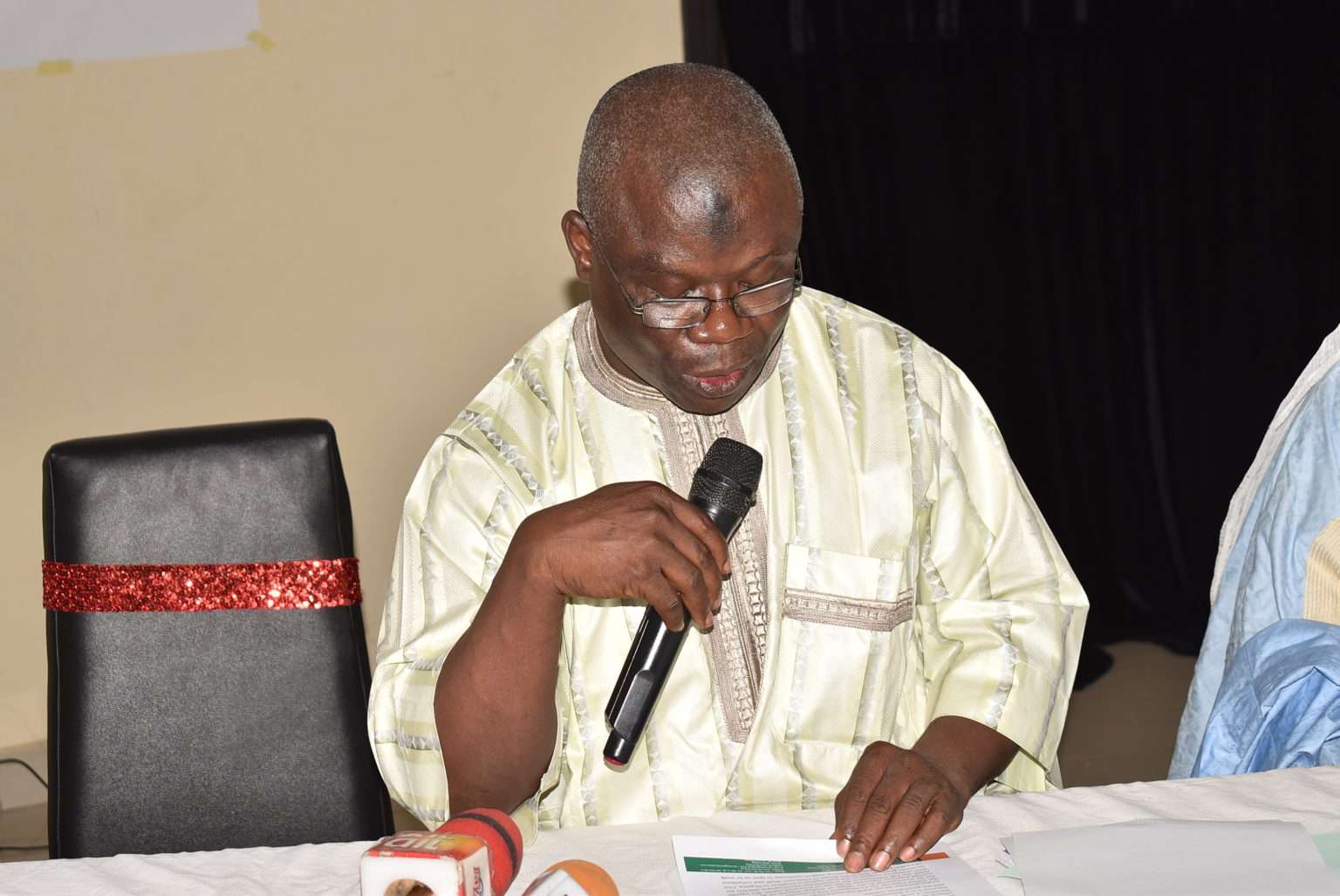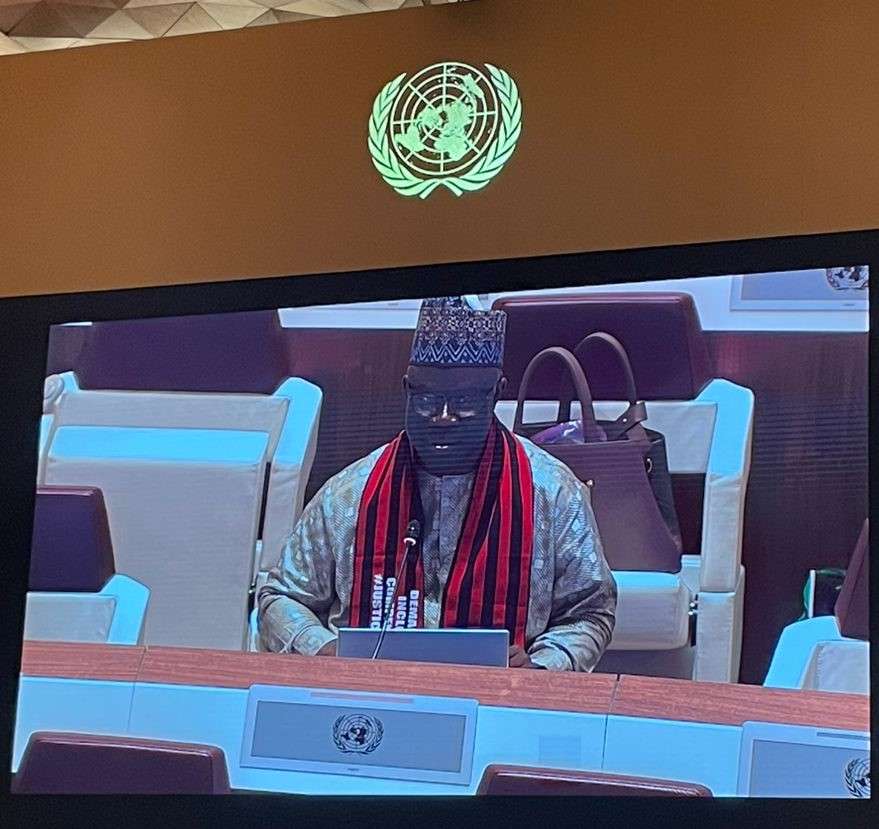
Draconian Amendments To Press Council, Other Attempts To Muzzle the Media Will Fail
State of the Nation Press Conference on the Shrinking Media and Civic Space in Nigeria Addressed by the Executive Director of Resource Centre for Human Rights & Civic Education (CHRICED), Comrade Dr. Ibrahim M. Zikirullahi at Top Rank Hotel Galaxy, POW Mafemi Way, Jabi Abuja, on July 1, 2021.
Distinguished media friends and colleagues in the CSOs, invited guests, ladies and gentlemen.
Let me begin by welcoming everyone on behalf of the Board of Directors and the Secretariat of the Resource Centre for Human Rights & Civic Education (CHRICED). Today’s press briefing is necessitated by a recent development, which holds serious implications for the role of a free Press in Nigeria’s democracy. Whenever the Press, one of the major pillars supporting the democratic process, comes under state-sponsored attacks, masquerading as regulation, it is the collective responsibility of all well-meaning citizens and groups to expose and denounce such a sinister agenda. This is a historic responsibility. Even in the heydays of military dictatorship, no amount of state-sanctioned assaults on the independent Press could undermine its power as an institution, which speaks truth to power and serves as the true market place for the ideas that shape society. The history of Nigeria’s march to democracy is replete with stories of how the guns and jackboots of military dictators could not silence the Nigerian Press. Many had to pay the ultimate price; others who survived the onslaught of those tortuous years, still wear the scars of those dark days when the powers that be insisted, but failed in their attempt to make the media impotent and subservient. Notwithstanding these pressures, in the end, the independent Press in Nigeria came out of those challenging times, stronger and more resilient. The story of Nigeria’s march towards democracy can therefore not be written without taking account of those valiant struggles by activist-journalists for a free, independent and vibrant press.

Therefore, there is no mistaken the fact that if the independent media in Nigeria could surmount those dark, and terrible days of military dictatorship, there is no reason why it will not overcome the renewed onslaught by political actors who appear to have reached the disturbing conclusion that gagging the media and shrinking the civic space are the fundamental objectives and directive principles of state policy. In the face of serious governance challenges such as chronic insecurity, mass unemployment, crumbling infrastructure, unbridled corruption and extreme poverty; political actors across the federal and state levels appear fixated on “taming” the media, instead of tackling pervasive social and economic problems facing Nigerians. It is pertinent to note that since the All Progressives Congress (APC) took over power at the federal level in 2015, it has spent enormous energy, time and resources trying to undermine freedom of expression. The government at the centre has exhibited crass and an excessive passion on putting forward legislations and policies, which sole objective is to stifle freedom of expression and muzzle the Press and civil society.

Apart from the surreptitious introduction of previous harsh legislations, which attempted to give sweeping powers to government to curtail the right of citizens, the government has continually shown intolerance to views and perspectives, which do not align with its own. These tendencies clearly make it evident that the current regime brooks no contrary view. From the way the government has carried on therefore, diversity of voices and plurality of opinions appear to be anathema. The disposition of the current regime to free speech, contrary views, and dissent is a clear message to the media and civic groups to brace up for the struggles ahead.

Apparently, after the universally-condemned ban on the operations of microblogging site Twitter, the government has now shifted its focus to the amendment of the Nigeria Press Council Act. From the details of the proposed amendments, there can be no doubt that the intentions are not noble, but repulsive. The key proposals put forward for the amendment of the Press Council Act are meant to turn the independent media into the lapdog of the government in power. It is therefore apparent that those who put forward these amendments were not thinking in terms of how the Press can better deliver on its constitutionally-sanctioned mandate of holding power to account and promoting good governance. Section 3c of the proposed amendment presents a good example of the desperation of the current government to do everything within its power to tie the Press to its apron strings. That particular section states: “with the approval of the Minister in charge of information, establish and disseminate a national Press Code to guide the conduct of print media, related media houses and media practitioners.” What this section is saying in essence is that it is the Minister of Information, a political partisan interested in skewing media coverage to make the government look good that should approve what constitutes quality journalism through a Press Code. By putting an interested partisan at the helm of the approval process, the proposed amendment has shown that the real motive is to cow the Press and control it as political actors deem fit.

Subsequently, another odious section of the proposed amendment is Section 3f, which states “with the approval of the Minister, grant print media and other related licenses to any application worthy of such.” What this implies therefore is that if Alhaji Lai Mohammed, the Minister of Information does not feel your application for a media license is “worthy” probably because you have criticised the government in the past, your application will be rejected outrightly! Section 3, subsection 3 of the proposed amendment goes on to state: “Where an offence under this section has been committed by an individual or body corporate, such person(s) or body corporate shall be deemed to be guilty of an offence and liable to be prosecuted against and be punished accordingly.” This proposed amendment usurps the power of the courts, and goes on to make the Press Council on the directives of the Minister, the accuser, prosecutor and judge. It is all a ploy to put draconian powers in the hands of a few men intoxicated with power, with the intent of stopping journalists from playing their constitutionally assigned roles in a democracy. The amendment is replete with several instances of excessive fines and terms of imprisonment for offences, which have been deliberately created as traps for journalists to deter them from doing independent, critical and dispassionate reporting on activities or issues confronting Nigerian society.
It is equally pertinent to make it clear that the 1999 Constitution despite its flaws and many contradictions guarantees the right of freedom of expression and the free Press. Section 39(1) is unambiguous that “Every person shall be entitled to freedom of expression, including freedom to hold opinions and to receive and impart ideas and information without interference.” Section 39(2) goes on to state that without prejudice to the generality of subsection (1) of this section, every person shall be entitled to own, establish and operate any medium for the dissemination of information, ideas and opinions.” The right of freedom of expression is therefore guaranteed by the constitution. It is apparent that the government is hell bent on undermining this right. The other day, the Minister of Information, Alhaji Lai Mohammed argued before the National Assembly that the government’s steps to stifle freedom of expression through the ban of sundry platforms of free expression has the backing of the constitution. Mr. Lai went on to quote Section 39(3) of the Constitution, which states” Nothing in this section shall invalidate any law that is reasonably justified in a democratic society-(a) for the purpose of preventing the disclosure, of information received in confidence, maintaining the authority and independence of courts or regulating telephony, wireless broadcasting, television or the exhibition of cinematographs or films…” The Minister was in essence canvassing the view that Section 39(3a) has abrogated the right to freedom of expression. That is a lie from the pit of hell. The fundamental question is: are the current proposed draconian provisions, and blanket bans on platforms of free expression “reasonably justified in a democratic society?” Even if the government wants to regulate, why should it stifle freedom of expression, instead of promoting, and protecting it as a constitutional right? These posers should fire the resolve of all media organizations, free press campaigners, journalists and activists to keep on the good fight against the antics of the state to silence and control the Press. Importantly, no amount of ministerial sophistry can wish away the mandate of the free Press as enshrined in Section 22 of the 1999 Constitution as amended: “The Press, radio, television and other agencies of the mass media shall at all times be free to uphold the fundamental objectives contained in this Chapter and uphold the responsibility and accountability of the Government to the people.”
Nonetheless, it is important to point out that CHRICED is not against regulation, which would address some of the challenges or gaps constraining the roles of a free press, including the threat posed by fake news, misinformation and disinformation. CHRICED is also not unmindful of the very difficult environment in which our distinguished colleagues in the Press operate. There are welfare issues, which regulation can help address, if it is done with a sincere, patriotic and forthright intention. However, we cannot let a government that has shown its intolerance to freedom of expression use “regulation” to pull the wool over the eyes of citizens.
As stakeholders, whose engagement with the Nigerian citizens depends on a free, vibrant and independent press, we must pull all the stops to ensure that repressive provisions aimed at gagging the Press are exposed, denounced and done away with. In this regard, CHRICED commends the activities of media and civil society organisations, which have made substantial efforts to put this issue on the forefront of the public discourse. We particularly commend colleagues at the Premium Times Centre for Investigative Journalism (PTCIJ), the International Press Centre (IPC), the Socio Economic Rights and Accountability Project (SERAP) and the many other free speech campaigners who have been devoting time and energy to defend the right to freedom of expression.
The Federal Government led by President Muhammadu Buhari, and the National Assembly must understand the danger of what they have been doing. Many of those who populate the government today were a few years ago in the opposition. If there was no freedom of expression, would they have been able to sell their ideas, including their many unfulfilled promises to the Nigerian people? The lesson those in power today need to learn therefore, is that power and everything connected to it is transient and ephemeral. If some of the draconian laws they are proposing become reality, they would one day be out of power, only for those same laws to be used against them. Nonetheless, beyond expressing outrage about the attempt to cow the independent media, CHRICED believes well-meaning citizens and groups must come to terms with the reality that the battle line has been drawn, and it is time to evolve strategies, which would ensure the Press does not become the appendage of political power, which is bent on rendering it impotent.
Together, we must keep up the good fight to preserve the right to free speech, and open society so that we can have a just and verdant world.
Many thanks for your kind attention.








